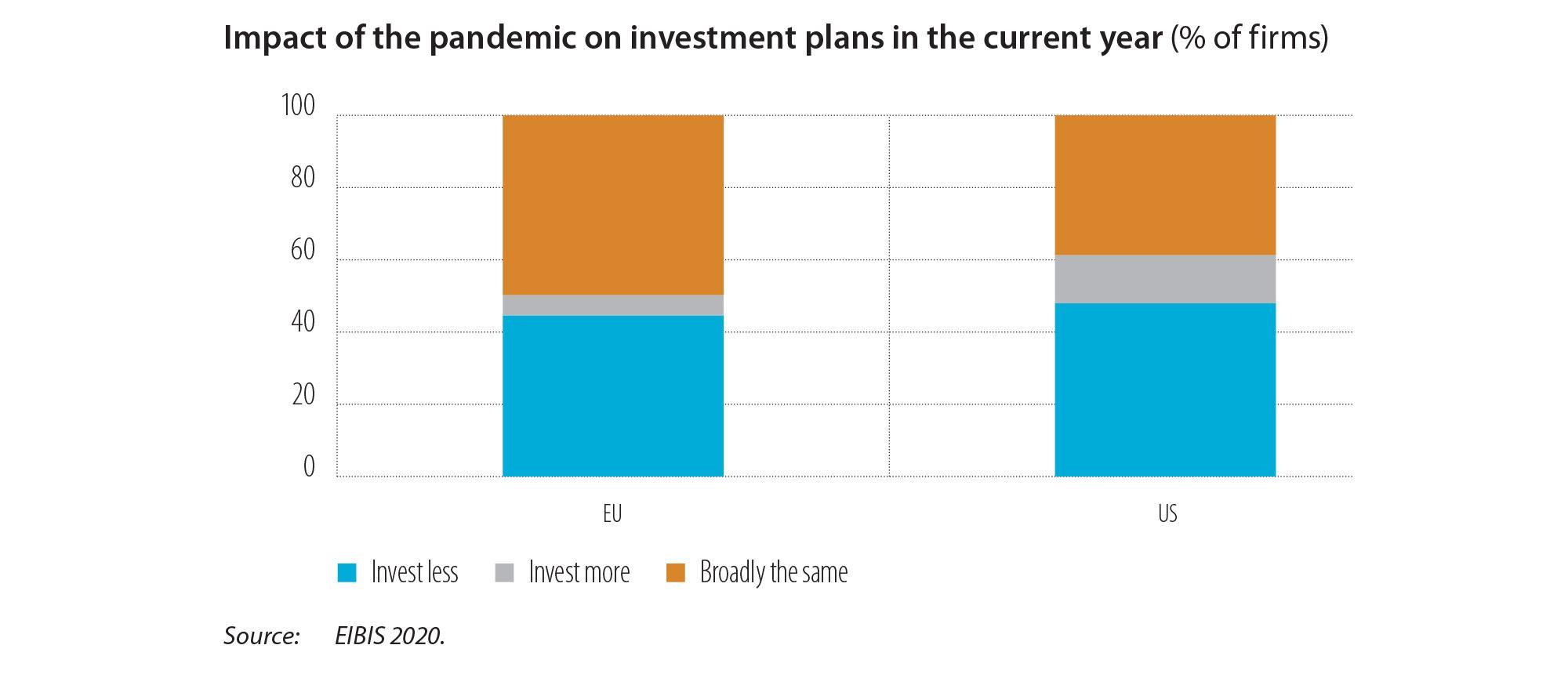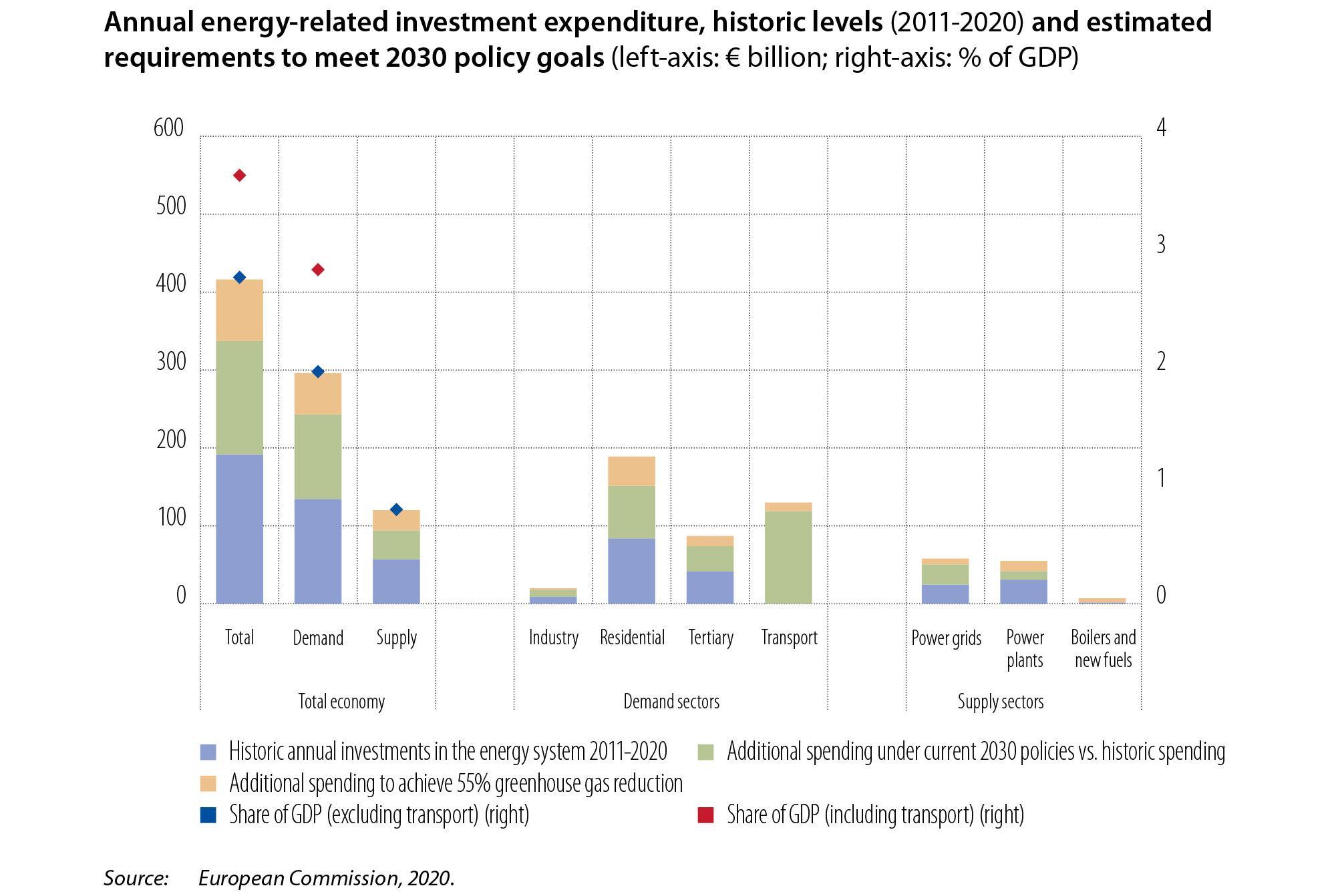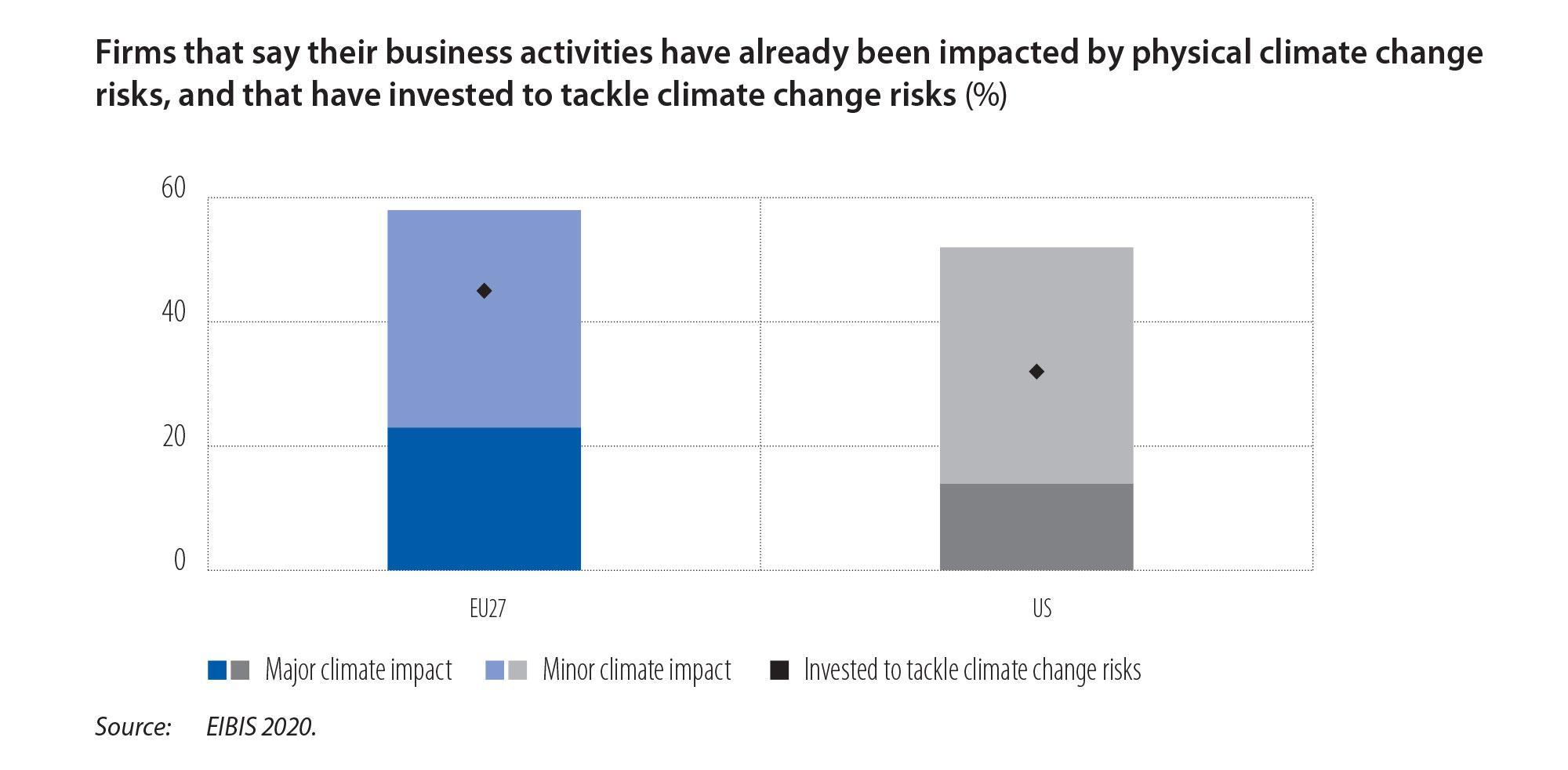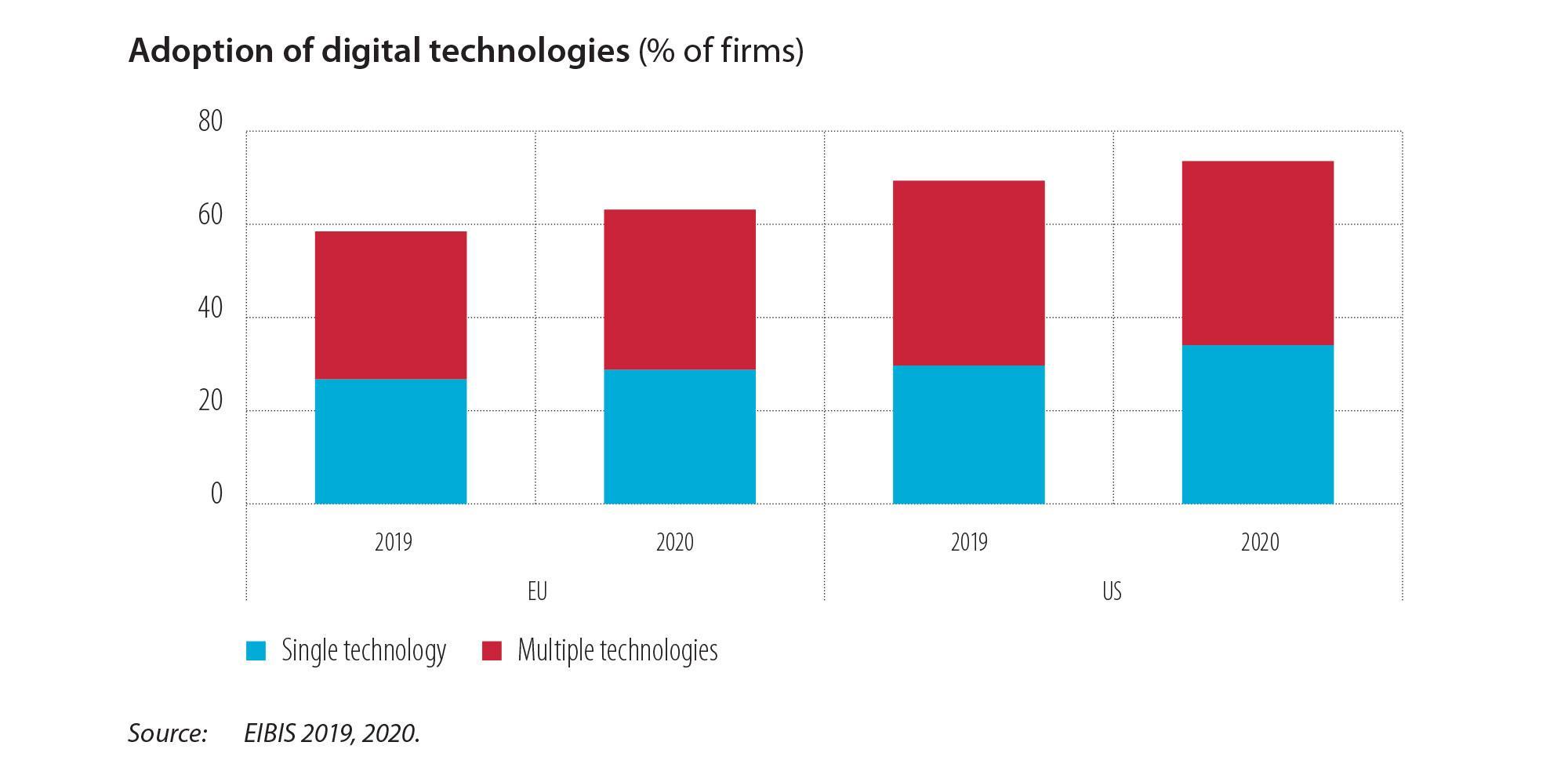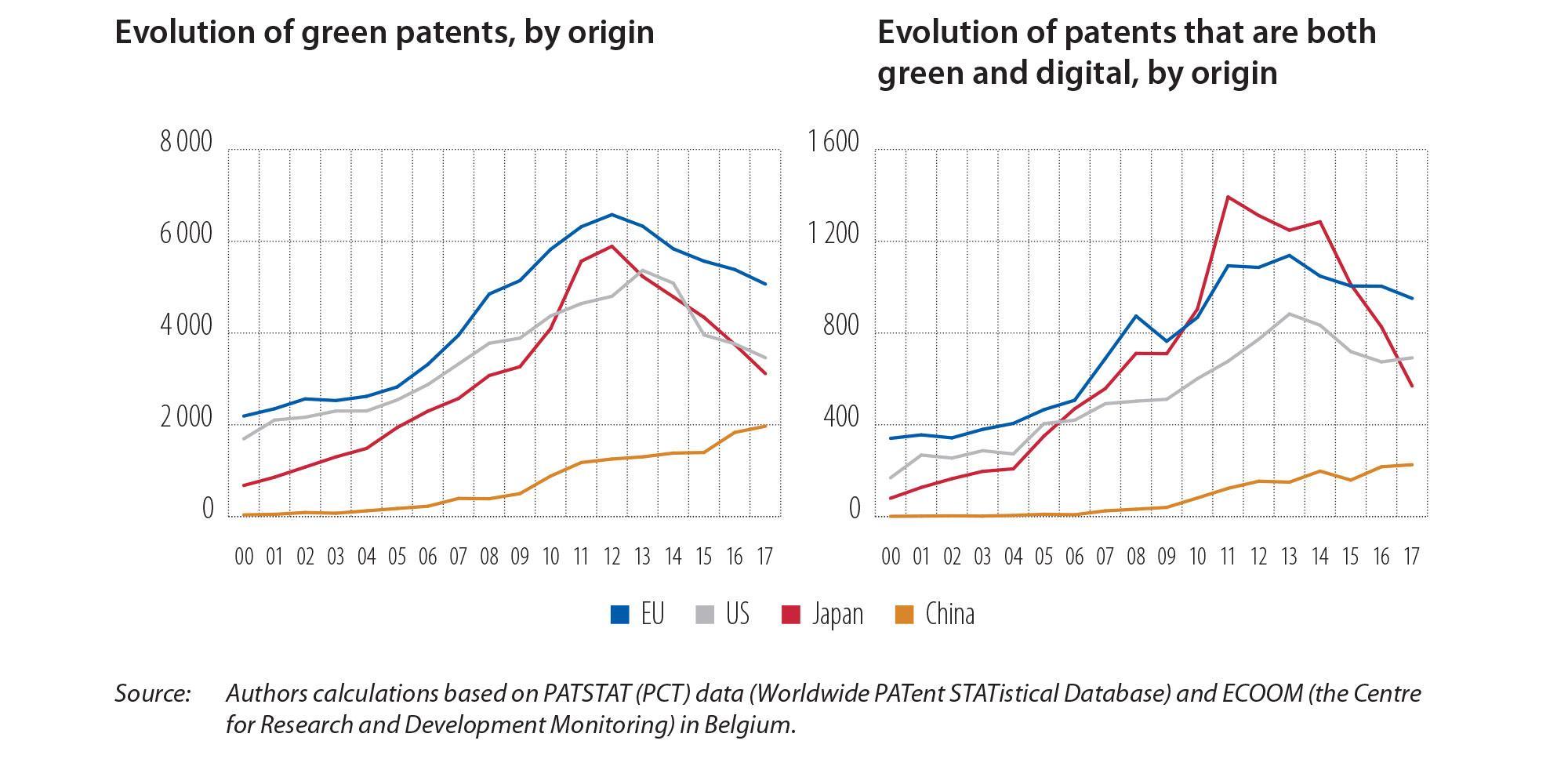Europe faces a choice. The recovery from the coronavirus pandemic provides a unique opportunity to transform the European economy so it can thrive in the new, more digital world created by the pandemic. The massive public funds dedicated to the recovery could also be instrumental in limiting climate change and preparing for its impact.
- It is an opportunity to set Europe firmly on a path to carbon neutrality by 2050 and shore up its global leadership in digital and green technology.
- It is an opportunity to repair the damage wrought by the pandemic and to strengthen social cohesion.
Yet there is also a serious risk. The uncertainties and financial strains created by the pandemic could keep the EU economy from investing the large sums needed for the transformation. The dangers are numerous:
- Massive public spending could be too untargeted.
- Europe could fall behind the new wave of digitalisation.
- It could lose the advantages of its current leadership in green technology.
Failing to live up to these challenges means more than just a longer recovery. It means that Europe’s sustainability, competitiveness and prosperity might be impaired for decades to come.
The impact of COVID-19
The outbreak of the pandemic in Europe in mid-March had immediate and dramatic consequences for investment. Investment contracted precipitously, along with other economic activities, as a direct result of lockdown restrictions. The effect was mostly felt in the second quarter of 2020, when investment fell 19% compared with a year earlier.
Economic sentiment deteriorated strongly, with firms adopting a pessimistic outlook for the year ahead. Firms’ perceptions of the economic climate had already turned negative in 2019, but those sentiments took a further dive with the arrival of the pandemic.
As the pandemic wears on, uncertainty about the future has become a major deterrent to investment.
Key figures:
- 45% of firms expect to reduce investment in the coming year, while only 6% expect to increase it.
- 43% of firms that planned to make climate change investments said the pandemic would negatively affect their investment plans.
- 20% of firms expect to reduce employment as a result of the crisis.
Climate change
The gap between Europe’s climate objectives and its climate investment is growing. European investment in climate change mitigation increased gradually in 2019, but it is still insufficient to meet the European Union’s climate goals.
Since 2016, investment has declined slightly as a percentage of gross domestic product (GDP), and the trend likely continued in 2020. Throughout the European Union, investments will have to rise significantly if Europe is to cut greenhouse gas emissions 55% by 2030.
Key figures:
- 23% of European firms say that climate change and related weather events have already had a major impact on their business, vs. 14% in the United States.
- 45% of EU firms have invested in climate change mitigation or adaptation measures (vs. 32% in the United States), but fewer plan to do so in the next three years.
- The proportion of EU firms reporting investment in energy-efficiency measures increased to 47%, up almost 10 percentage points over 2019.
Digital
Europe is losing ground within a rapidly changing global innovation landscape. The European Union is investing less in R&D as a percentage of GDP than other major economies, and China is emerging as a major player. European companies are among global R&D leaders in various traditional industries, but are less present in fast-growing digital sectors such as software and computer services, where Chinese firms are starting to challenge the United States.
The European Union also does not appear to be generating much new innovation in the digital sector, which could weigh on its long-term competitiveness.
Key figure:
- By 2020, 37% of European firms had still not adopted any new digital technologies, compared with 27% in the United States.
The green-digital nexus
Europe is a global leader in green innovation, and even more so in innovation that is both green and digital.
The development of green technology offers great opportunities. Firms that innovate at the nexus of green and digital technologies expect the climate transition to lead to more dynamic and competitive markets.
Potentially large markets for green and digital innovations offer enormous possible rewards, and Europe’s early lead could help it establish a leading position. To stay ahead, however, the European Union must continue to invest and innovate.
Key figure:
- Europe registered 76% more patents that combined both green and digital technologies than the United States, and four times more than China.
A smart, green and socially cohesive Europe
The pandemic represents an almost unprecedented shock to European and world economies. The European Union’s massive emergency response has limited the immediate economic ramifications of the shock, but going forward Europe needs to lay out a long-term vision of the green and digital transformation.
Greening and digitalisation present opportunities to create new jobs – even in the short-term. It is true that the transitions will drive a shift in the kind of skills demanded and lead to the elimination or reduction of some kinds of employment. But it will also create new jobs, and the overall impact on employment could be positive. The shift could benefit some regions more than others, however, and policy action needs to address regional disparities and promote social cohesion.
Dig deeper
Chapter 9: Infrastructure investment in the face of digital, climate and cohesion challenges
Chapter 10: The impact of digitalisation and climate change policies on social cohesion


